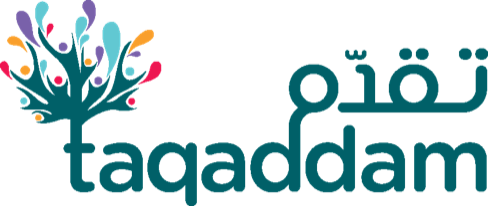Why Taqaddam?
There is broad recognition that formal education systems are not fully preparing young people for life beyond the classroom, amongst policy-makers, researchers, educators, employers and young people themselves. Many students are graduating without the competencies and ‘soft skills’ that help them succeed in further education and in the workplace, and without the social and emotional skills to build lasting personal and community relationships.
Meanwhile, the world is changing, and at an accelerating pace. New technologies and industries are changing the way the world operates. Artificial intelligence and automation are raising questions about the future of work, social media is changing the way we connect, and the boundary between the online and offline worlds is increasingly blurred. The climate crisis, resource depletion and growing inequalities mean that business as usual is no longer an option. Social, political and environmental uncertainty is the norm and this brings additional challenges to young people and to education systems that struggle to adapt.
This changing world is also energising a new and socially engaged generation that is driving innovation and creativity and Taqaddam is on the forefront of life skills education, enabling young people to lead the way.
What do you mean by ‘life skills’?
Life skills are simply: all the skills we need to make the most of life. Different combinations of these life skills are also referred to as soft skills or 21st Century Skills
In Taqaddam, we focus on some of the personal and interpersonal attitudes and abilities that play a critical role in the ability to learn, connect and adapt to make the most of life’s opportunities. Together with greater self-awareness, a connection with their life skills supports young people to engage with the world more confidently and in a deeper and more meaningful way.
We take a holistic approach, but explore three life skills in greater depth: creativity, critical thinking and collaboration. These ‘3Cs’ have been prioritised because they are recognised as central to personal well-being, employability and positive engagement in society. They are also interconnected with, and provide effective entry points into, many other life skills.
- Critical Thinking – the ability to analyse and evaluate the world in order to form judgements, develop ideas and think for yourself.
- Creativity – using the imagination to explore the world in new ways, create something original and express yourself.
- Collaboration – connecting effectively with others and using the skills and abilities of multiple people towards a common purpose.
Why Life Skills?
Life skills have been proven to positively impact young people’s personal, professional and community lives.
Life Skills are both crucial to a person’s wellbeing and have had a demonstrated positive effect on education, employability and labour market outcomes.
However, there is broad recognition that formal education systems in MENA are not fully preparing young people for life beyond the classroom. Many students are graduating without the competencies and ‘soft skills’ required to succeed in further education and in the workplace.
